As more people enter the wide, weird world of cannabis culture, more people are beginning to experiment with cannabis outside of the occasional joint or edible. One aspect of cannabis culture that might have caught your attention is at-home cultivation, which allows you to grow and process your very own weed supply.
However, when you first dip your toes into the world of cultivation, you are immediately faced with a baffling choice: Do you start with seeds or clones? What do these terms mean, and how can you make an informed choice? Read on to find out.
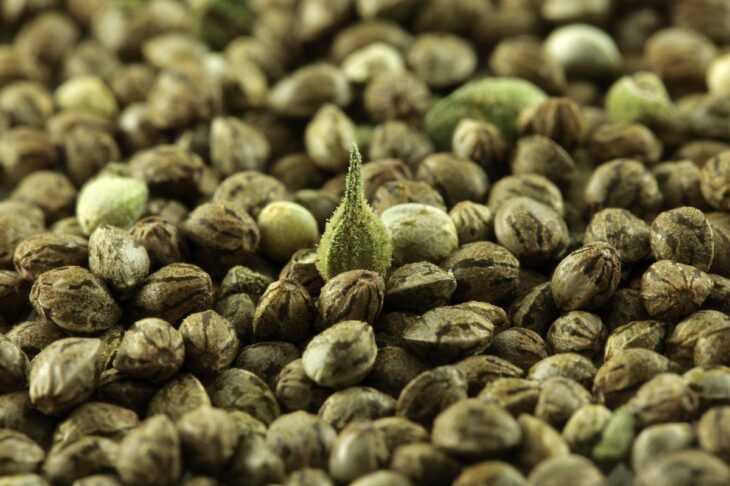
Source: NY Daily News
Contents
What Are Seeds?
Seeds are exactly what they sound like — seeds, which grow into cannabis plants of their own when properly sowed and tended. In the wild, cannabis plants can only reproduce sexually, which means that in order to grow seeds, the flowers of female cannabis plants must be fertilized by the pollen of male cannabis plants.
In captivity, breeders often separate male and female plants, which helps keep female plants growing big, beautiful buds that can be harvested for consumption. If pollination occurs, female flowers lose potency by up to 30 percent, and because high potency provides higher profits, it usually isn’t beneficial to keep male and female plants together. However, some breeders do pollinate their crop, either by hand or through natural processes, to produce seeds to sell to enterprising home cultivators.
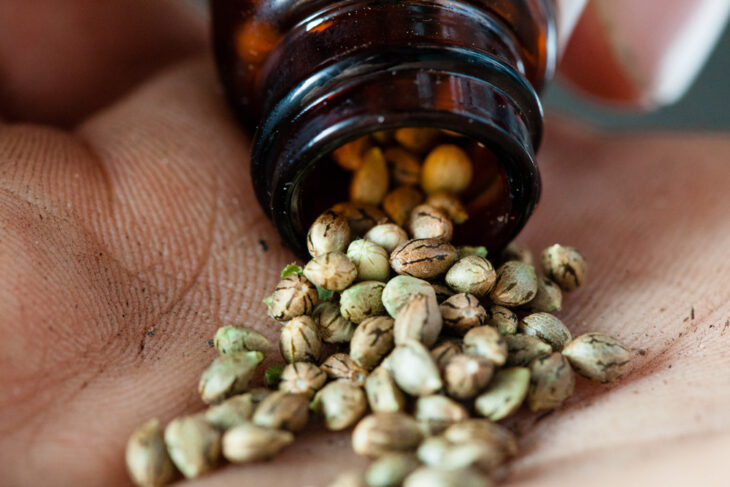
Source: Growers Network
Pros and Cons of Seeds
Pros
- Seeds are discreetly packaged and legal to buy and sell almost everywhere in the world, so they are extremely accessible even if you don’t live in a place where medical or recreational weed is legal.
- Once you have a few cannabis crops, you can begin breeding your plants together to experiment with new strains.
- Seeds tend to produce healthy plants, free of persistent diseases or pests — as long as you care for your seed-grown crops appropriately.
Cons
- Seeds can grow slowly or never germinate, especially if they are old or stored improperly before planting. This usually means you have to buy more seeds to ensure a thriving crop.
- If you aren’t careful to buy feminized seeds, you will likely get a mix of male and female cannabis plants. Male plants do not produce buds with cannabinoids, so they are essentially useless to home growers disinterested in experimenting with breeding.
- Seeds from famous strains can be expensive, and costs for planting and tending seeds can add up. Usually, it is more cost-effective to buy popular strains from a Fort Collins dispensary and try to grow lesser-known strains at home.
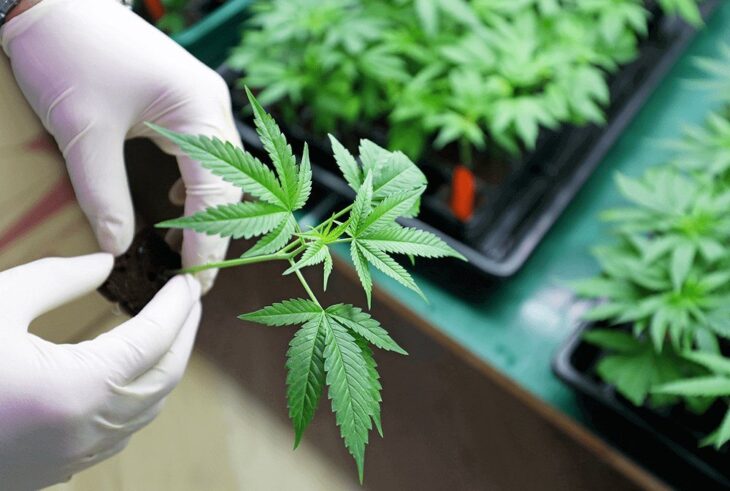
Source: Denver Clone Store
What Are Clones?
Cannabis can reproduce asexually, as well, though this occurs infrequently in nature. Asexual reproduction amongst cannabis plants involves taking cuttings from a mature plant and propagating them, or growing roots and planting that cutting as though it were a seedling. This cutting is called a clone.
Breeders produce clones for a few reasons. For one, they are easier to make than seeds, which require breeders to maintain a crop of males and allow female plants to lose potency in going to seed. What’s more, clones boast an almost identical genetic profile to their mother plant — which has its own pros and cons.
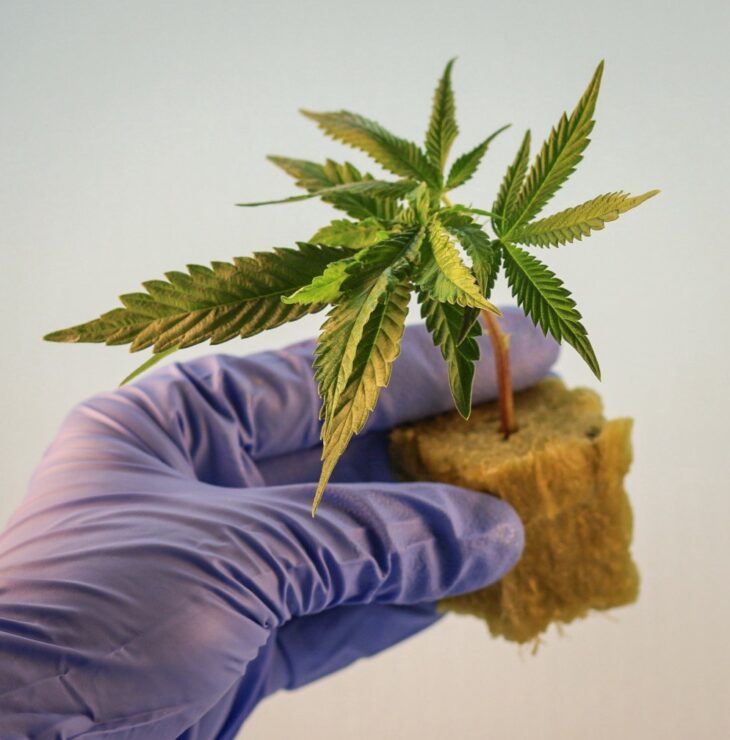
Source: Medium
Pros and Cons of Clones
Pros
- Clones are guaranteed to be female because breeders do not sell male clones. Thus, you are definitely buying a plant that will have harvestable buds.
- Clones tend to be sold at a more mature stage of growth, meaning you don’t need to wait quite as long before you can harvest your flower.
- Having identical genetics to a mother plant, clones are predictable in their growth patterns and potency levels. This can take a lot of guesswork out of cannabis cultivation and make home growing a bit simpler, especially for beginners.
Cons
- Many breeders believe in “genetic drift,” the concept that successive cloning will result in crops that are much different from the original mother. There is some reputable science behind this theory, so it is important that you always trust the source of your clones to ensure high quality.
- Clones perpetuate problems present in the mother plant. If the mother suffered from some kind of disease or pest, the clone will likely suffer from it, too.
- Clones are a bit more delicate, requiring specific light, soil and moisture conditions to thrive. Often, clones die unexpectedly before flowering because their care is insufficient.
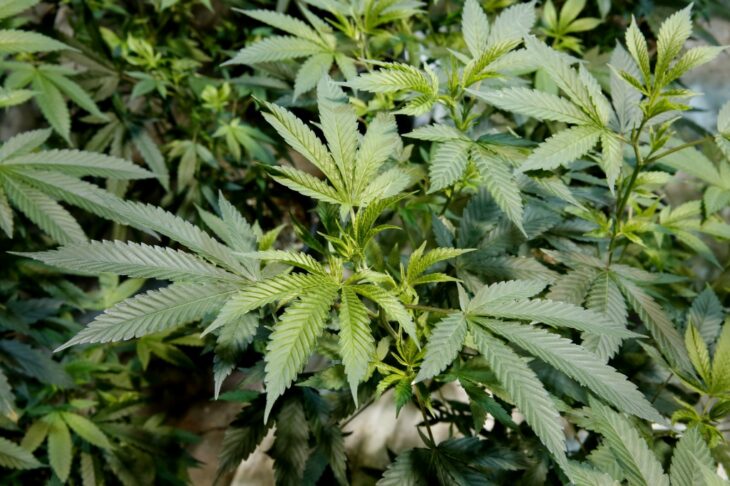
Source: GreenState
If you expect to be interested in home cannabis cultivation for a good long while, it doesn’t hurt to experiment with both seeds and clones. Every grower has a preference, and you will find yours by trying out both options in time.
